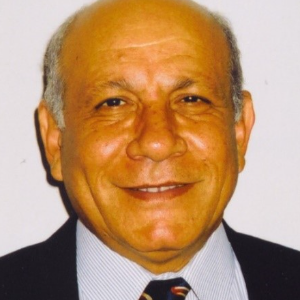Nanotechnology is defined as a new technique for fabricating useful materials, systems, and devices with nanoscale materials, as well as new phenomena and behaviors at the nanoscale (1–100 nanometers). Adding specific Nanoparticles (NPs) to injection solutions can help enhance oil recovery significantly. In the recent decade, nanomaterials have been used as new EOR approaches to solve residual oil problems in heavy and semi-heavy oil reservoirs
Advanced wells with sensors and valves installed downhole to enable for easy monitoring and regulation are referred to as "smart" or "intelligent" wells. The valves are controlled remotely based on the sensors' detection of circumstances. Reservoir management is aided by smart wells. The most difficult aspect of smart wells is maximizing their efficiency. Smart wells are a promising new technology that has a high success rate.
Artificial lift is a technique used on oil wells to raise reservoir pressure and assist oil to rise to the surface. Artificial lift is used to recover greater output when the reservoir's inherent drive energy is insufficient to push the oil to the surface.
- Improving Oil Recovery with Nanoparticles
- Nanoparticles as Additives
- Rock Wettability
- Nanosensors
- Beam Pumping
- Hydraulic Pumping
- Electric Submersible Pump Systems
- Smart Wells in Complex Reservoirs
- Realistic Optimal Control Strategies

Anthony J Sadar
Environmental Science Communication, LLC, United States
Selim Sanad Shaker
Geopressure Analysis Services, United States
Sharma Dronamraju
AKD Professional Solutions Inc., United States
Ross Cygan Taylor
North Sea Transition Authority, United Kingdom
Saleh Alqahtani
Saudi Aramco, Saudi Arabia
Abdulrahman Bahashwan
Saudi Aramco, Saudi Arabia



Title : The Vacuum Insulated Heatable Curtain (vihc): From conceptual invention to market deployment as a cost-effective dual solution for window heat loss reduction and localised radiant comfort
Saim Memon, Sanyou London Pvt Ltd, United Kingdom
Title : Transforming waste plastic into hydrogen: Progress, challenges, and future directions in pyrolysis-based integrated pathways
Nur Hassan, Central Queensland University, Australia
Title : Unlocking UKCS potential through collaborative well interventions
Ross Cygan Taylor, North Sea Transition Authority, United Kingdom
Title : Driving excellence in marginal field development and operations through an integrated smart strategy to unlock challenging sour oil
Sharina Al Muhairi, ADNOC Onshore, United Arab Emirates
Title : Innovative solutions for accurate and efficient gas monitoring
Raysa Bani Ibrahim, Abu Dhabi National Oil Company, United Arab Emirates
Title : Innovative solutions for accurate and efficient gas monitoring
Mariam Alzaabi, Abu Dhabi National Oil Company, United Arab Emirates